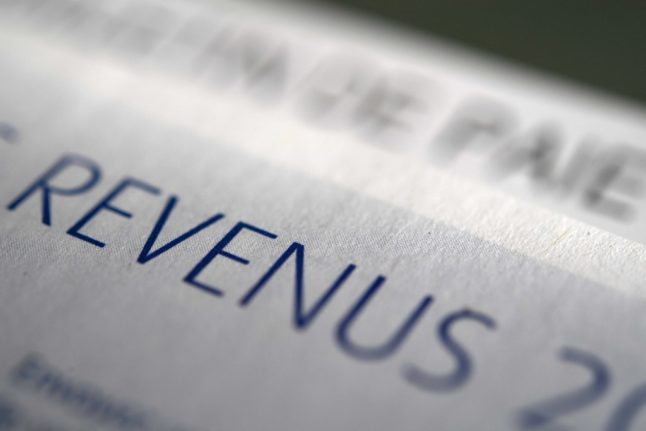For those who concerned that they may have made a mistake was made while filling out their annual income tax declaration (déclaration des revenus), this can now be rectified on the tax website.
On August 2nd, the French government tax website opened its correction service, meaning you can go into your personal space and modify any erroneous elements listed in your declaration. This will be available until December 7th.
Taxpayers in France received their online tax assessments for the previous year on the Impots.Gouv.Fr website in late July, which should have informed them whether or not a reimbursement would be applied or if further payments are due.
Given that most people are taxed at the source in France, you may have found that you will neither receive a reimbursement nor owe money.
How to make the changes
To do this, go to the website, enter your personal space, and click the tab “Accédez à la correction en ligne” (Access online correction). You can fix amounts that were incorrectly listed or check (or uncheck) various boxes in the form.
However, it is not possible to process a change in your family situation or civil status – for instance, if you would like to list a marriage, divorce or death, you must send a paper declaration to the tax office or reach out to via the secure messaging system on the tax site for further advice, according to reporting by Le Parisien.
All corrections must be processed on a computer, as it is not available on tablets or smart phones.
After validating the changes have been made, you can expect a confirmation email to be sent. In the coming weeks, French tax authorities will issue a new tax bill, either leading to a reimbursement for the amount you already paid and the correct value that is due, or a request for additional payments.
What if my bill is still wrong?
If you believe that your tax bill is still incorrect after having made changes, then you may consider visiting your local tax office, which is usually open to the public. You can find your local tax office by Googling ‘Centre des Finances Publique’ plus the name of your commune, and up should come the address of your local office.
Most centres don’t require an appointment, so just go in and ask for help – it’s a good idea to take all relevant documentation with you, and certainly a printout of the tax you received and your most recent tax declaration.
READ MORE: Reader question: How can I challenge my French tax bill?
To the surprise of foreigners French tax office employees are not only accessible, they are also by and large friendly and helpful and will be happy to look over your declaration and explain the reasons for your bill.
If it seems that your bill is an error, you can request a recalculation, and if you visit the tax office the official will help you fill in the form and lodge the request.



 Please whitelist us to continue reading.
Please whitelist us to continue reading.
Member comments